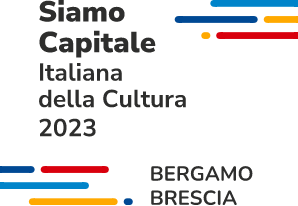IMMERSIVE POINT OF INTEREST
Villaggio Crespi D’adda

INFO AND RESERVATIONS
Visitor Centre
Corso Alessandro Manzoni, 18 – 24042 Capriate San Gervasio (BG)
Tel. + 39 02 9091712
info@visitcrespi.it
www.visitcrespi.it
HOW TO GET >
PUBLIC TRANSPORT >
RESTAURANTS >
HOTELS >
The bureaucratic process behind the ideal city of work that Crespi dreamed up, as an extraordinary place representing the culture of labour, took about two years to prepare the required documents. It was recognised as a World Heritage Site on 5th December 1995 together with Siena, Naples and Ferrara. This unpredictable result put the workers’ village in the spotlight of the world. After all, it was an admirable example of an industrial city that was still active and almost perfectly preserved. It was only in this way that manufacturing work, which was dying out as a result of an inept relocation policy, was gradually and partially replaced by intellectual work, linked to the cultural and tourist promotion of a place rich in the positive values that work brings.
ALL POINTS OF INTEREST
LAST EVENTS
15
April
2023
5
April
2023
2
April
2023
1
April
2023
1
April
2023
30
March
2023
18
September
2022
17
September
2022
RELATED ITINERARIES
The itinerary provides an insight into the sway held by Cristoforo Benigno Crespi from Busto Arsizio over the area, focusing on a unique historical period that saw the development of hydroelectric power stations, industrial plants and innovative housing systems for company employees along the course of Bergamo’s rivers. On this tour, the starting point is…
15
2023
5
2023
2
2023
1
2023
1
2023
30
2023
18
2022
17
2022
The itinerary provides an insight into the sway held by Cristoforo Benigno Crespi from Busto Arsizio over the area, focusing on a unique historical period that saw the development of hydroelectric power stations, industrial plants and innovative housing systems for company employees along the course of Bergamo’s rivers. On this tour, the starting point is…
GENERAL INFO
Surface: 5,78 km²
People: 8.190
Hamlets: nessuna
USEFUL CONTACTS:
Centralino 02 920991
Fax 02 920991209
Polizia Locale 02 920991212
Info Turistiche 02 920991231
Guardia Medica 116 117(Numero Unico)




